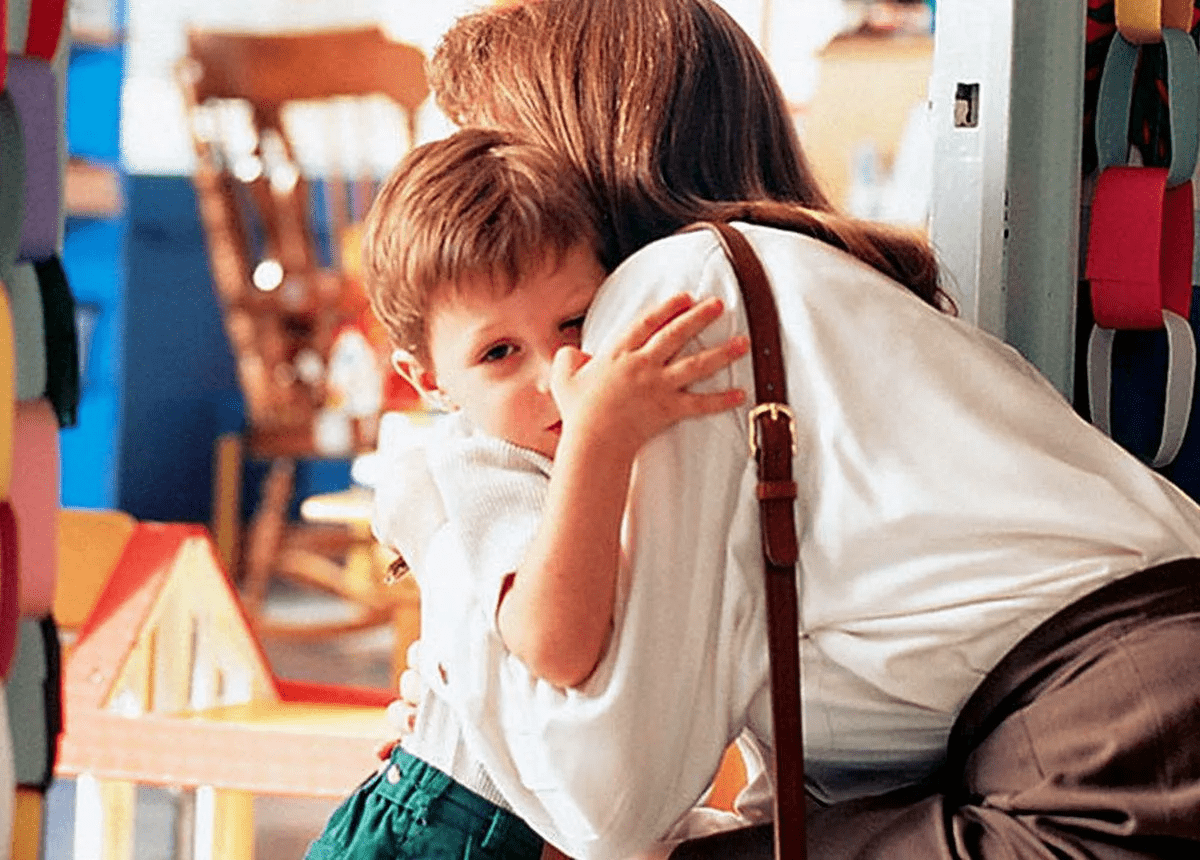Armenian families usually have three or more children. A famous family with 16 sons and daughters lives in Yerevan. Choosing an apartment to rent, many relocants try to settle with a view of the courtyard, and not the street - hoping for peace. But he usually isn’t there: several dozen loud-voiced children pour out onto the playground every day, bringing hooting and chants into the measured life. Parents do not scold their children: they are kings in Armenia.
But the children of relocants in a new country may feel uncomfortable and even scared: the language is different, the people are different, their friends are far away. How can you help your beloved child adapt, start having fun, and turn moving into an adventure? We collected advice from psychologists and experienced parents.
Contents
How to determine if a child is not coping
The first year and a half of — relocation is the time for the formation of new chains of neural connections, building relationships with new people, acquiring new habits. Perhaps all this will go well, and the child will get on a new path. But, if your child’s behavior has changed dramatically, you should definitely seek help from a specialist. It is important for parents not to focus on solving pressing problems, of which there are plenty during the relocation process, but also to pay attention to these aspects of behavior:
- The emotional range has changed
If before the move the child was characterized by active behavior, laughed, played, joked, and now for a long period he looks “extinguished” and resembles a shadow of his former self - problems are obvious;
- Obsessive movements and other neurotic signs
For example, the child is haunted by his fingers, began to bite the skin around his nails, bite his nails, twist his hair endlessly, and put sleeves in his mouth. In the case of a small child, returning enuresis (urinary incontinence) is also a clear sign of neurosis;
- Computer addiction
This happens to children quite often. It seems to them that there is nothing to do in the new place, none of their friends are here, the rhythms of life are different. You shouldn’t ban the computer completely, but it’s worth understanding whether the child is giving himself digital escapism from reality when he sits down at the keyboard;
- The preschooler's games have changed
Take a closer look to see if sad or depressing scenes appear in your child’s games or drawings. The emergence of sad motives in creativity during a move is absolutely normal, but you need to understand in time how much the child is worried;
- It's scary at night, it's hard to sleep
This is a sure sign of strong unrest. You shouldn’t wait for them to go away on their own; most often, during a move, these manifestations of neurosis only intensify. It’s better to immediately work through your experiences with a psychologist.

Photo: Yandex
How to help your child adapt
There is an opinion that it is easier for children to adapt to emigration than for adults. But no one has yet collected full-scale studies and reliable scientific data on this topic. So this statement is largely subjective.
Language
A key factor for a child of any age is knowledge of the language spoken in the country of relocation. In the case of Armenia, the relocation process is much smoother, because Armenians, as a rule, begin to study Russian either in the family or in first grade schools, or even in kindergarten. In addition, there is a large Russian-speaking community in Armenia, so there is a great chance of meeting peers from your hometown on the playground or even in the classroom.
There is a non-zero chance that a child will be fascinated by a language unknown to him, and he will want to understand what others are talking about. Such a desire is a lifeline for a young relocant, and parents must definitely support the impulse. Immersion in the language, especially if mom and dad don’t know it, will give your child more self-confidence - “I’m smarter than adults” - and will also allow him to adapt much faster. You will find Armenian language schools in our catalog.
Life
Psychologists have calculated that the most difficult stage of adaptation when moving for children occurs in the first one and a half to two months. Then the acute period continues for three months, when the child still finds it difficult, but he begins to form new acquaintances and habits.
Over the next six months, they become stronger, and thanks to the routine that has emerged, the acute feeling of discomfort gradually recedes. Therefore, the main task of parents during all periods of adaptation — is to try to streamline and systematize everyday life so that the child has a clear configuration of life.
After a year and a half, both the adult and the child in the new country have a past, everything begins to improve. It is comfortable for a person to live where he can remember how he ate sweet grapes last fall, and celebrated being all wet in the summer Vardavar, and after sunbathing beach near Sevan. While there is no past in a new place, a person is left with a feeling of uprooted roots.

Photo: Yandex
Third adult
Popular advice from experts is that at the time of moving, in addition to mom and dad, a child needs to have another adult for communication. Someone who is not so involved in the process may even have stayed in his homeland, but is always in touch to discuss the experiences of the young relocant. This confidant could be a cousin, godfather, aunt, grandfather, or favorite teacher. In the process of getting used to it, the child will have a desire to talk about things that you cannot tell your parents about. Even if both the father and mother are doing well, the child still understands that they are nervous and it is better not to bother them with their problems.

Photo: Yandex
Psychologist
If the family has the financial opportunity and time allows, psychological support, especially for adolescents, during the first six months after moving would be appropriate. It is important for children not to hold back emotions, but to speak and formulate what is happening inside and what the child sees outside. In our directory We have gathered specialists with good reviews who will help children adapt faster. Some of them have their own channels on Telegram:

Photo: Yandex
Not emigration, but travel
A frequent difficulty with modern emigration is that the move takes place in several stages. Relocants do not always know for sure where to live, so apartments, cities and countries can change many times. Nevertheless, it is worth trying to reduce the number of such “jumps” — it is difficult for children to tear themselves away from a new home every time.
Another piece of advice that is more suitable for young children would be to change the narrative – turning relocation into a journey in the child’s eyes. You can arrange the departure as a holiday, arrange a celebration, avoid tears and long goodbyes - let the baby think that adventures, pirates and treasures await him ahead. In addition, you can promise to buy him upon arrival what he has long wanted - candy, a toy or a phone. This may not be very pedagogical, but it may well inspire even a difficult teenager.
It is also important not to throw away anything that the child is not ready to part with. If you have him as a collector, you don’t need to throw away his collection of cards, chips or sticky items from the Dixie — store, take it with you. Oddly enough, it is these optional things that create comfort when moving. They form part of our identity and are dear not only to children and adolescents, but also to adults. They help to recreate, to feel a new self, because any emigration, any move — is a gap in identity that needs to be stitched. This requires time and special effort.

Photo: Yandex
Children's superpowers
A useful tip would be to have a thorough conversation with your child about his “superpowers.” Discuss together why he is cooler than other guys, and what he likes to do just for himself. It is on this arsenal that the child usually builds his winning strategies in relationships with other children and gains confidence and becomes morally stronger.
You can jointly draw up a plan of simple actions that will help him in his studies, communication with classmates and teachers. Regularly discuss difficult situations and possible solutions to gradually develop the habit of solving problems on your own.
If there are several children in the family, talk to each one separately, because a three-year-old, a ten-year-old and a 14-year-old will have completely different dialogues.

Photo: Yandex
Other families
Moving to another country for a long time is not a new thing. Perhaps, right in the apartment next to yours, parents and their children are going through the same stages of adaptation and adaptation. Don't try to solve all the problems yourself, look around and ask for advice. Parent chats on Telegram will help you with this. These are very popular in Armenia:
- MOMS AND DADS IN YEREVAN 🇦🇲 CHAT;
- MOM'S HELP. Armenia;
- Yerevan children | parents chat;
- Russian language schools in Armenia.

Photo: Yandex
Entertainment, sports and clubs
Perhaps the best way not to be discouraged is to distract yourself from melancholy thoughts. You won’t be able to do this while sitting at home - children need more walks and fresh air. Yerevan is a great place for this, where the weather allows active leisure and infrastructure. Here are some of the entertainment spots:
- theme park "Yerevan Park";
- city of professions "Citizen";
- amusement park "Lunapark";
- Yerevan zoo;
- amusement park "Victory Park";
- playground "El Garden";
- children's Cafe "Ponchikanets Grand Candy".
And we have listed the best clubs and sections in this article.

Photo: Yandex
Conclusion
Changing residence affects everyone differently. The reaction may depend on a dozen factors: the child’s age, character, whether he has been to the country of relocation, whether there are friends and relatives here, whether there are any significant people and things left at home - a best friend, an animal, grandparents, hobbies. Nevertheless, parents are able to smooth out the adaptation process. It is only important to be more sensitive to your child and follow the advice of psychologists.



















Add a comment